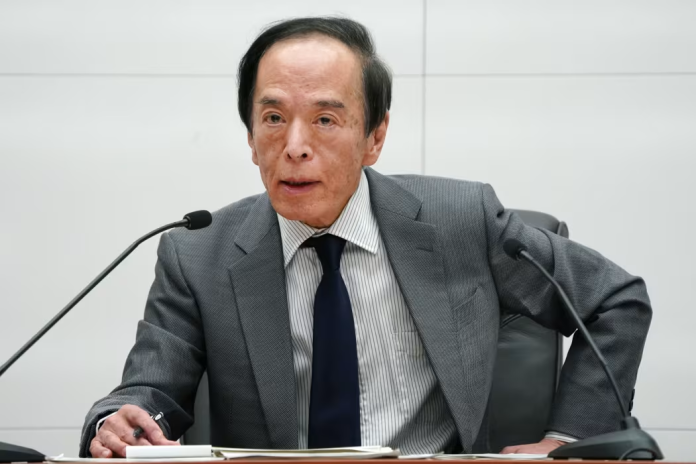The central bank of Japan reviewed one of the world’s most aggressive monetary easing programmes aimed at encouraging bank lending and stimulating demand, The Guardian reported.
In its first interest rate hike in 17 years, the Bank of Japan (BoJ) stated that it was raising its short-term interest rate from -0.1 per cent to between zero and 0.1 per cent. Analysts argue that the “fragile” economic recovery means that it will continue to decline at a slower pace as borrowing costs continue to rise.
The BoJ became the last central bank to abandon negative rates, ending an era when policymakers sought to support economic growth by forcing banks to lend more by charging interest on money banks deposited at the country’s central bank.
The bank abandoned the 2016 policy, deeming its long-standing 2 per cent stable inflation target to be “within sight.” Seven of the bank’s nine board members supported the move, while two opposed it, Japanese media reported.
Japan’s largest employers agreed in talks with labour unions this month to raise wages by 5.28%. Izumi Devalier, head of Japan economics at BofA (Bank of America) Securities, stated before the Bank of Japan’s policy decision:
This would be the first rate hike in 17 years, so it has a lot of symbolic significance. But the actual impact on the economy is very small. We would not expect a substantial rise in funding costs or households mortgage rates.
The BoJ came under pressure to end its ultra-soft monetary policy, which was seen as a key factor in the yen’s rapid fall against the dollar. The weaker yen helped exporters but put more financial pressure on households.
For a brief moment in 2023, inflation in Japan reached its highest level in more than 40 years, complicating prime minister Fumio Kishida’s work. However, the level was still well below the inflation rate that led to sharp rises in the cost of living in many countries around the world in recent years.
The US Federal Reserve and other central banks raised rates to curb soaring inflation after the outbreak of the war in Ukraine in 2022. However, the BoJ managed to keep its key rate negative.
The rate hike will make borrowing more expensive for consumers and businesses as well as increase Japan’s cost of servicing its public debt, which is about 260 per cent of gross domestic product and among the highest in the world.
